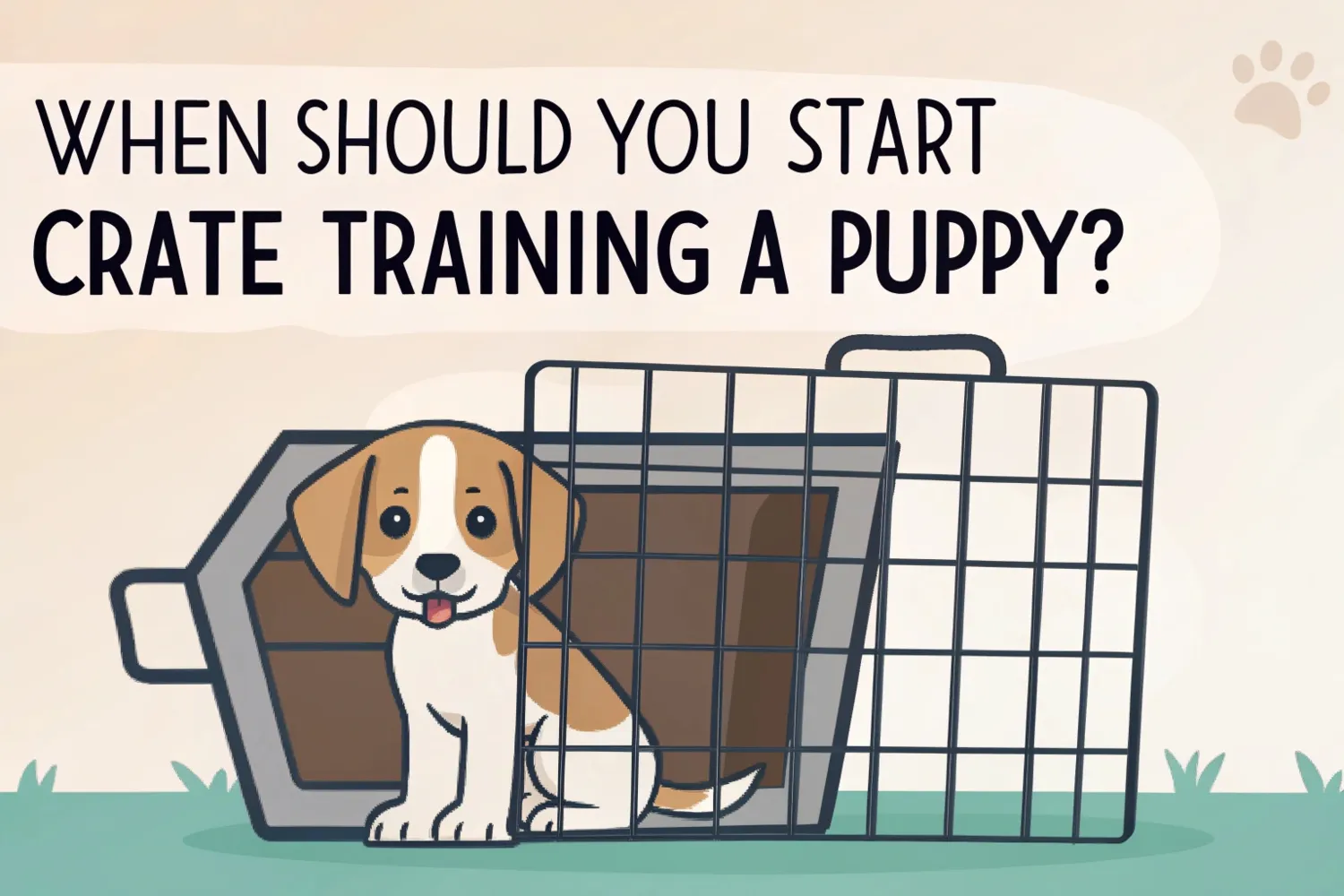Crate training is a big part of what makes a good, well-adjusted, happy puppy. It provides them with a secure and comfortable area to stay and teaches them various life skills while they are under your care. At K9 University, we specialize in dog training: obedience, advanced techniques, behavior corrections, and programs in Oklahoma. If you’re wondering when to start crate training your puppy or how to get started, just read on to find out all you need to know.
Why Crate Training Matters
Crate training is essential for both you and your puppy. Here are the reasons why:
- Makes a Safe Place: Like a den, your puppy feels safe and relaxed in his crate.
- Supports Potty Training: Puppies don’t want to soil their sleeping area and therefore tend to maintain bladder and bowel control.
- Prevents Destructive Behavior: Keeping your puppy in a crate when unsupervised minimizes the risk of them chewing furniture or getting into trouble.
- Prepares for Travel and Vet Visits: A crate-trained puppy is more comfortable and less stressed during car rides or visits to the veterinarian.
When to Start Crate Training
The best time to crate train a puppy is when they are at their most impressionable, usually at the age of 8 to 10 weeks. It is during this time that puppies learn new routines. Early initiation enables them to learn the crate as an environment that is safe and good.
How to Crate Train Your Puppy Successfully
Select the Correct Crate
Take a crate that is appropriately sized for the puppy. It needs to be large enough so that your puppy can stand, turn around, and lie down. The crate should not be so big that they use it to defecate in one corner. Many crate makers offer separators so that you may expand the crate as they get older.
Gradual Introduction of the Crate
Place the crate in a quiet, comfortable area of your home. Leave the door open and let your puppy explore it at their own pace. Add a soft blanket, toys, and a treat to make it inviting.
Use Positive Reinforcement
Teach your puppy to go in the crate using treats or toys. Give them praise once they enter it, and don’t push them in. It should be a happy place that is rewarding for them.
Establish a Routine
Puppies like routine. Crate your puppy during their naps, bedtime, or when you’re away for short periods of time. Increase the time spent in the crate for your puppy since they will feel more comfortable in it.
Don’t Use Crate As Punishment
Never, under any circumstance, punish your puppy inside the crate. The experience with the crate must always be happy and refreshing for your dog.
Be Calm and Patience
Crating may work slowly with some puppies. Be patient with the puppy; he/she will begin to enjoy the crate gradually.
Mistakes Common Mistakes to AVOID
- Starting Too Late: Older puppies and adult dogs can still be crate-trained, but it may take more patience, time, and effort.
- Leaving the Puppy in the Crate Too Long: Puppies have small bladders and need frequent potty breaks. Avoid leaving them in the crate for extended periods. Besides, extended periods in the crate will make it not so enjoyable.
- Inconsistent Training: Consistency is key to helping your puppy understand and accept crate training.
Why Choose K9 University for Puppy Training?
At K9 University in Oklahoma, we can personalize training to better help you train a well-behaved, assertive puppy. Our experienced trainers specialize in crate training, housebreaking, basic obedience, and other areas, thereby giving your puppy a good foundational base that may last them an entire lifetime for good behavior. Here is why pet parents place their trust with us: Professional guidance for step-by-step instructions as dictated by your puppy’s need.
- Positive Training Methods: We focus on trust and building the bond building between you and your puppy.
- Comprehensive Programs: We offer all sorts of programs, from crate training to more advanced skills, so we may meet your dog’s training goals.
Get started on crate training today.
Crate training is a great skill that helps to prepare your puppy for success. Training early and sticking to a consistent approach will make your puppy feel secure and confident in their new environment.
Ready to give your puppy the best start in life? Contact K9 University today to learn more about our expert training programs in Oklahoma. Let us help you and your puppy build a strong foundation for a happy and well-behaved future.



